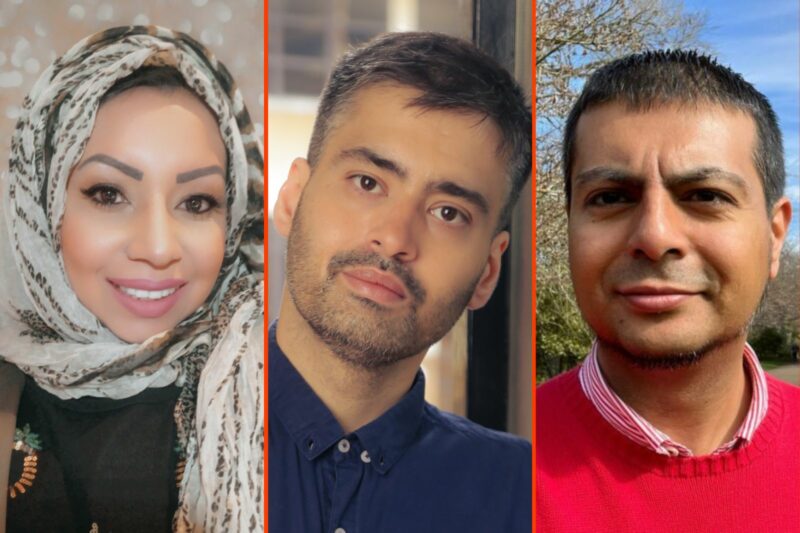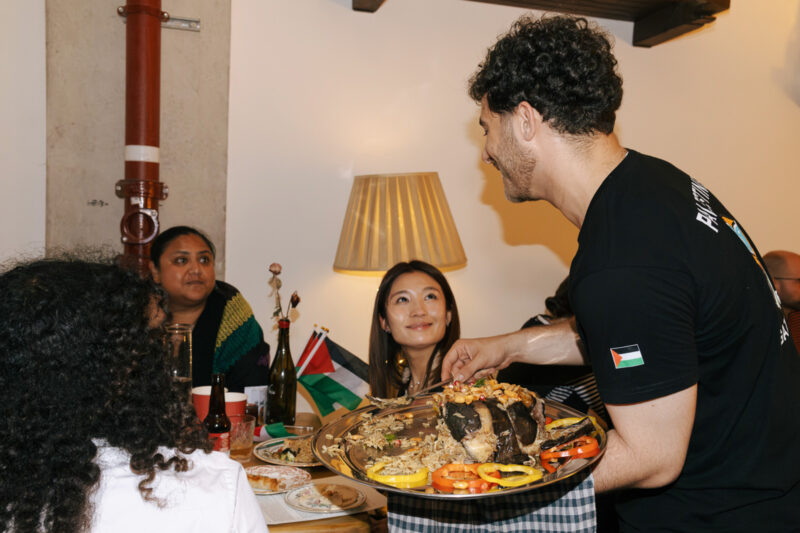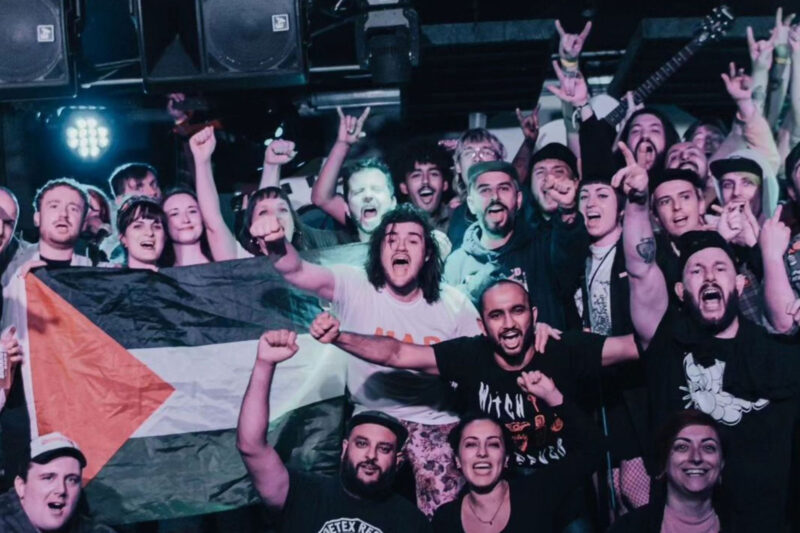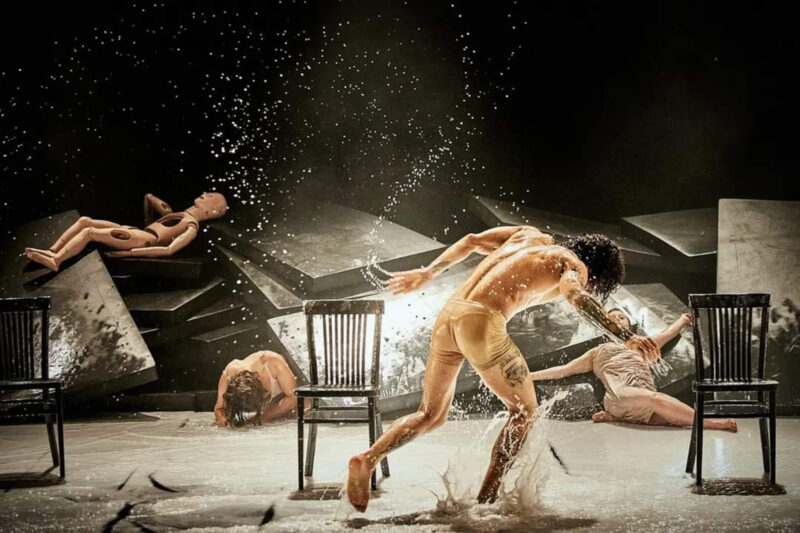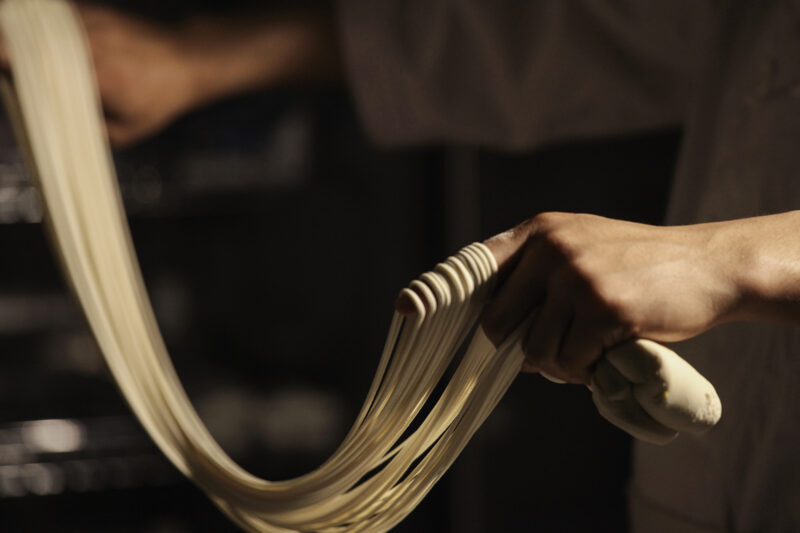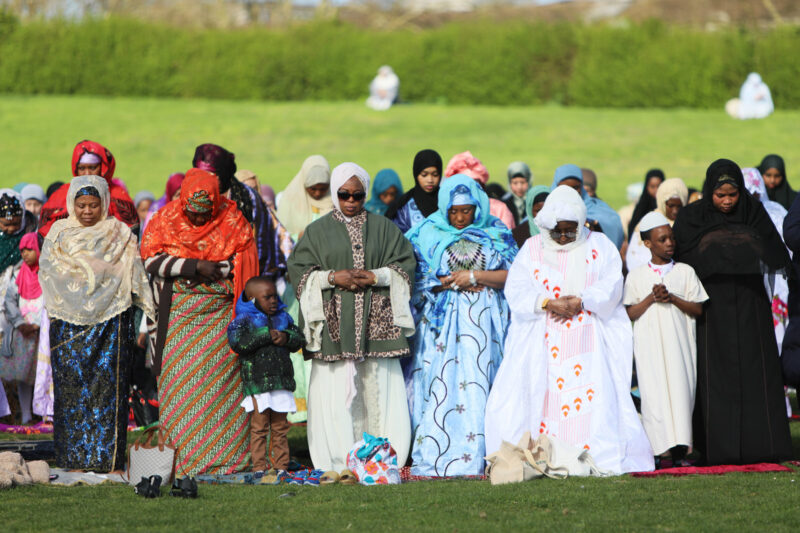
Farah Nabulsi Q&A: ‘I always knew that talking about Palestine would alienate me in the film industry’
Photo courtesy of Native Liberty Productions
The award-winning director on her life, work and finding the courage to speak out
–
Farah Nabulsi, 45, is a British-Palestinian film director and producer based in west London.
Nabulsi began her career as the producer of a number of short films highlighting the everyday realities of Palestinians living under Israeli occupation. They include Oceans of Injustice (2016), Today They Took My Son (2017) and Nightmare of Gaza (2018).
Nabulsi made her directorial debut with The Present (2020), a short film about a father and his daughter as they try to buy a wedding anniversary gift for his wife.
The Present premiered at the Clermont-Ferrand International Short Film Festival and earned praise from critics around the world. In 2021, it won the Bafta British short film award and was nominated for best live action short film at the Academy Awards. Nabulsi’s first feature film, The Teacher, premiered at the 48th Toronto International Film Festival in September 2023.
Here, she talks about her journey into filmmaking, career highlights and the inspiration behind her work.
This conversation has been edited for length and clarity.
You previously worked in finance. What inspired you to get into filmmaking?
The short version is that a decade ago I went home to Palestine. I had been there a number of times as a child, but this was my first time visiting for 25 years. That trip changed me.
I witnessed the extent of the injustice and the discrimination against Palestinian people, and just how institutionalised and systemic it is. I was blown away. I wanted to have an impact on what I feel is a colossal injustice, and to tell these human stories. For me, film is the most interesting and powerful way to approach the subject.
What was the most challenging aspect of your career change?
The biggest challenge was that I had never made films before. I never went to film school and I had no formal training in filmmaking. I did — and still do sometimes — suffer from imposter syndrome, but I was encouraged by the words of Stanley Kubrick, who said the best education in film is to make one.
What is the most pivotal moment of your career to date?
Everyone usually assumes it’s when I was nominated for an Oscar or won a Bafta, but I actually think the most important moment was when The Present premiered at the Clermont-Ferrand International Short Film Festival in France and won the audience award.
From there, the film went from strength to strength. It was that moment that culminated in the Oscar nomination and the Bafta. On a personal level, I remember being at the festival and having this overwhelming feeling of: “You are exactly where you are supposed to be.”
Your work focuses on Palestine. Were you worried about how this might be received by the film industry?
I knew that subject matter was going to alienate me from a big chunk of the industry from the get go, and that was absolutely fine. Thankfully, there’s been a whole section of the industry that has embraced my films and supported my work. The best example of that is the success of The Present, which has had audiences across the world and has been distributed by the likes of Canal+, Netflix and Telefonica.
How has Israel’s assault on Gaza changed the way that you think about your work?
These last months have been beyond devastating. We have seen that human rights are not really applicable to everybody and that international law is selective.
I had a sort of existential crisis about my work. I thought to myself: “What is the point of anything?” But I have come to realise that telling those human stories is hugely important, because it provides context beyond the statistics and what we see on the news. In many ways, it’s an act of resistance.
My films have been shared more than ever during these past two months. During protests here in London, people have come up to me and said my films have changed the way they thought about Palestine.
Were you interested in drama and film as a child?
My sister always says that anyone who knew me as a teenager knows I’m now exactly where I was meant to be. Growing up, I did so much drama. I was always in the school plays, always in the leading role. Many people assumed I would end up on one side of the camera or the other, either making films or as an actress, so it was quite a surprise when I ended up in investment banking.
Which filmmakers or films have influenced you most?
Ava DuVernay, who is an American filmmaker. She did the documentary film 13th, on race, justice and the prison system in the US, and the limited series When They See Us. All of her projects have meaning and depth. She has something to say about issues that matter to her and that inspires me. Other films include Jim Sheridan’s In the Name of the Father with Daniel Day-Lewis, the Brazilian drama City of God and Fight Club — that’s a cool film.
What can we expect to see from you next?
I’m writing a film about identity and sport. It has a focus on a specific sport and it is based in both Palestine and Europe, but I can’t share much as I’m really just in my first draft.
What message do you hope your work conveys to the world?
I want people to look deep into their souls and figure out where they stand on humanitarian catastrophes, which goes beyond Palestine. I encourage people to speak out and if they’re fearful of losing their jobs or being ostracised, or losing followers, then they are working for the wrong people and keeping the wrong company. That’s a big part of why I do what I do, because I need to look at myself in the mirror every day and respect who I am as a human being.
 Newsletter
Newsletter

